There is a small island by the anchorage we’re in, accessed by a bridge named ‘the bridge to nowhere’. The beach is mostly stoney, with a very shallow tidal area, steep drop off, and a small dock. It’s great for fishing, exploring for creatures, for families and groups of teenagers to meet up, and for the local tour boats to congregate in the shallows to clean their hulls. When we first arrived in Samaná before quarantine started, teenagers and families had Friday and Saturday evening parties, jumping of the dock into the sea and generally having fun. A group of about 7 huge teenage boys even invaded the boat one evening, but that’s a different story…




At the onset of the emergency measures here, the beach was pretty much deserted apart from two or three locals (one of whom lives in tiny hut on part of the beach) and a few fisherman. But as time goes on, gradually the number of visitors is increasing, and in some cases, people are gathering again in larger groups. The Armada and other authorities haven’t shown any action wich suggests this is a problem in daylight hours when movement is permitted. But when there was a particularly flagrant breach of curfew one evening, the Armada boat came into the anchorage after sunset towing 7 or 8 little fishing boats…balancing the need for freedom with a need to contain the virus is evident every day.
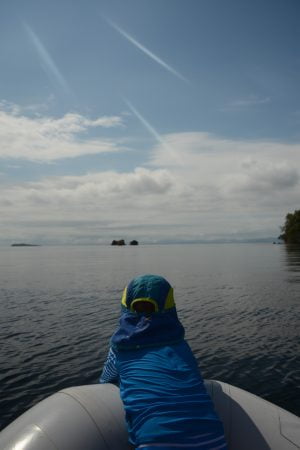
Like the other cruisers here, we are largely staying aboard. We visited the beach twice in the first three weeks of lockdown (compared to most days previously) and took our dinghy over to a tiny, uninhabited island and a quiet bit of coast line. Recently we have started using the beaches more often, but we are certainly not living a beach life. Nor have we been able to do any inland exploring, despite the reassurance of local Richard ‘No Problem’, who tells me walking and taxi tours are fine!!
In fact, our daily lives have been reduced down to our 70sqm boat, swimming and these occasional beach visits. Normally I would take at least one boy to shore shopping with me, but I currently go alone, walking to the mercado público for the most amazing (and almost all local) fruit and veg. It’s novel to buy veg crawling with caterpillars, and I guess it indicates little to no chemical use! After the market I walk to and queue for one of two supermercados for dry goods and fridge items, then usually take a moto-concho (tuk tuk) ride back to the dinghy dock. It takes a while to do a basic food shop due to the queues but otherwise it’s not too inconvenient. Since planning to cross the Atlantic, we’ve become increasingly systematic with our shopping (barring when we have access to a good supply of European goods and become undisciplined!) and keep a good stock of regularly used items. With global food supplies being threatened by COVID and the chance we may have to quarantine on the boat for a period in the future, we keep a spreadsheet of our tinned/jar supplies and tally anything we use between shops to replace, trying to keep a minimum stock level for each item. Sailing has been great preparation for lockdown provisioning!


We swim multiple times most days, staying close to the boat. The conditions here seem to follow a fairly regular pattern so we know to take advantage of calm mornings and a calm spell late most afternoons, as otherwise the current can be strong and the swell/wind can make it less fun. Arthur and Theo can cope in most conditions, especially with a swim zone of pool noodles threaded along a floating rope hung from the stern to grab hold of or catch any stray toys. Arthur has perfected jumping in from the stern arch (not nerve-wracking at all the first few times!) and is improving his free-diving. Theo can swim well without any floatation aid for longer and longer periods. And Hector loves swimming in the deeper waters of the anchorage, more so than from the beach, though that may be because the bottom here is so stony. Swimming with the kids isn’t always the best exercise for us adults, but it’s something at least; some cruisers haven’t been allowed to swim off their boats so we feel pretty fortunate.


So, apart from the shopping taking longer and lack of shore time, day-to-day our ‘lockdown’ life differs little from our ‘normal’ life. I wondered at first why friends were posting COVID diaries on Facebook, but it dawned on me that onboard Humpback we’re not having to adjust significantly because so much of what it means to be quarantined we were already doing. We are both at home with the kids 24/7 (apart from shopping, etc). Dave works from-boat and so distracting children are the norm, we educate (loosely) and look after our boys of different ages with no formal/outside schooling, trying to meet the daily challenge of balancing their differing needs. We read A LOT, play board games and talk about everything and anything, and the boys play-doh, paint, listen to audio books, watch the occasional video, learn about local wildlife and generally enjoy free play!


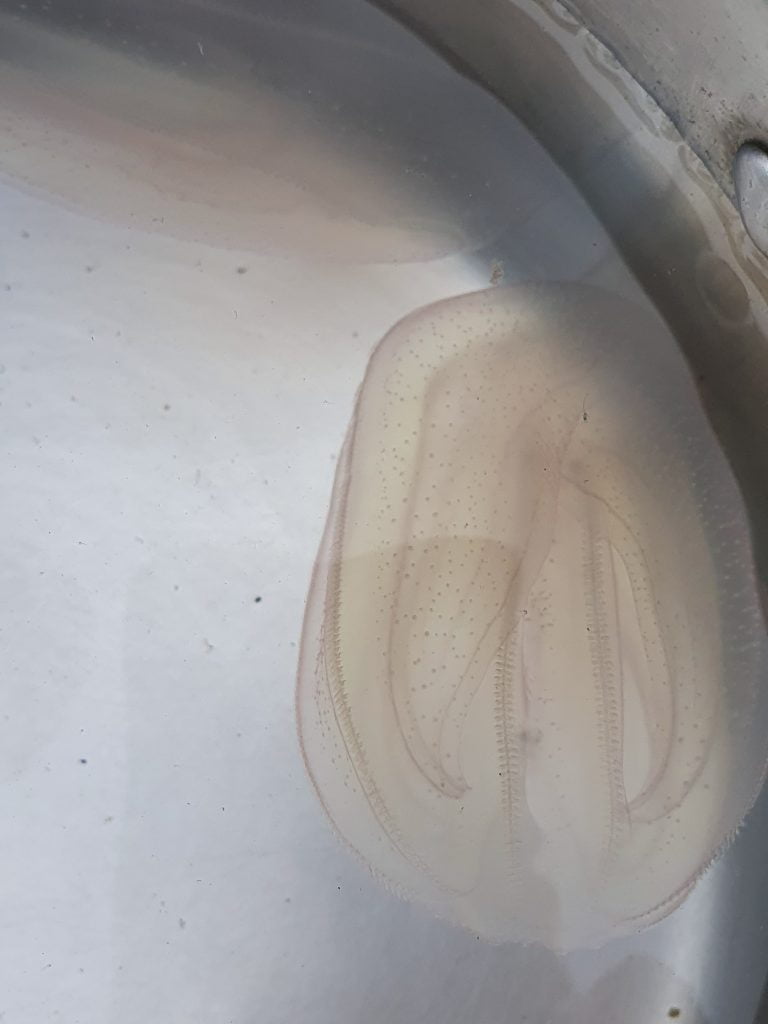




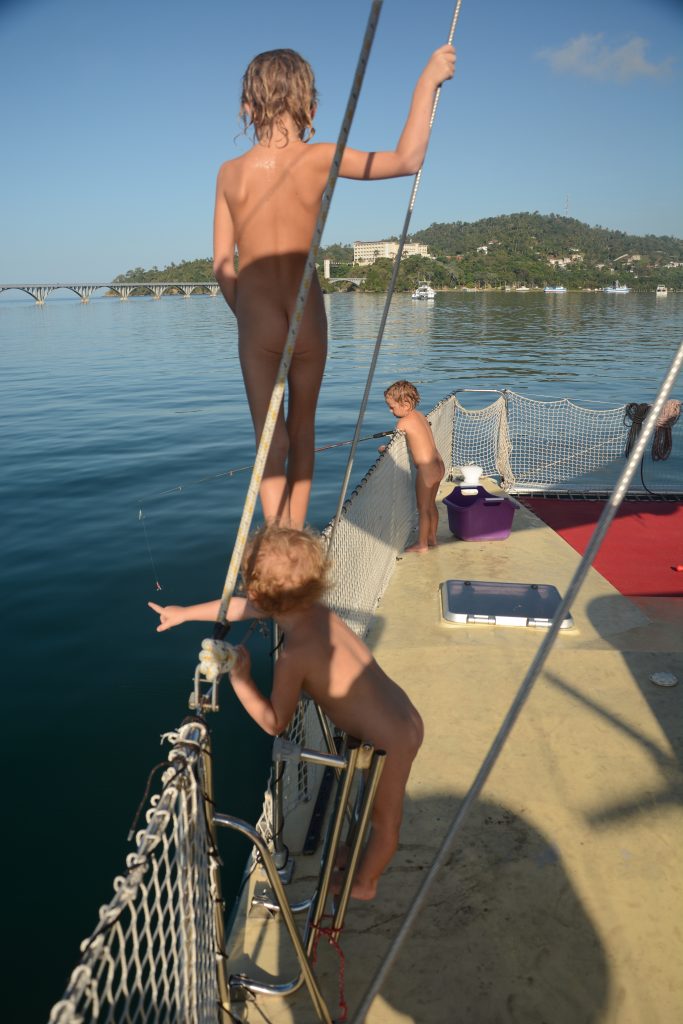

The boys are adapting to the lack of shore time brilliantly. I guess that, as they haven’t been through the confusing experience of schools closing and home-life routines changing, not going ashore is only a minor disruption. And they’ve got experience of being restricted to the boat. In bad weather we rarely make outings requiring the dinghy at all, let alone those involving the whole family, and after spending almost three weeks at sea crossing an ocean last year, they aren’t too fazed by their lack of land-based freedom. At least this way they can play on deck, swim and send me to replace supplies! They are used to making friends, both those on boats and with local kids, then moving on without an expectation of seeing them again, and of going weeks without seeing another ‘kid boat’ at all. If our children can teach us anything, it is how to adapt and take life as it comes.

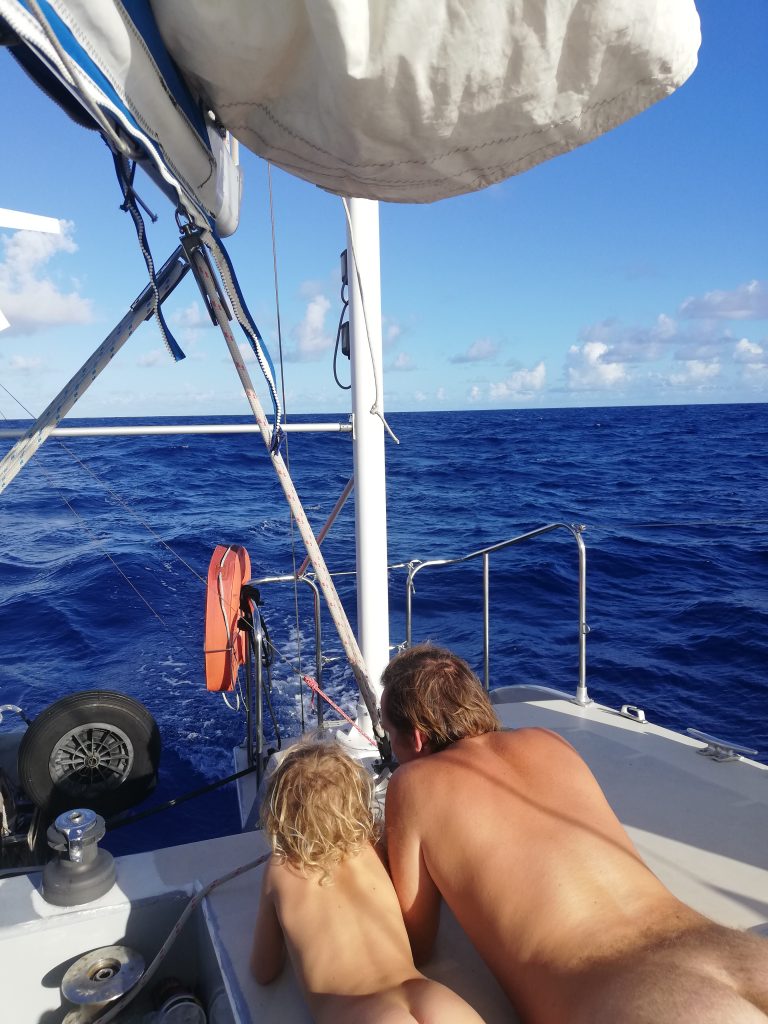


That’s not to say that they don’t bicker and fight. At times I want nothing more than to go for a long walk or beach visit to blow away the cobwebs; my mood resets best outside, and sometimes boys need SPACE! This is when I miss our old garden and house most, when all I want to do is send the boys outside to play without having to consider potential virus transmission, getting them dressed, having to supervise too heavily (decks by open water are not the safest places for non-swimming toddlers, especially adventurous ones!) or worrying about sun exposure. The boat offers many more opportunities for physical exercise than you might imagine, and we were drawn to this boat originally by the wide decks that offer space to run and play, but some of their increasingly adventurous explorations are a bit tough on my nerves- I get wobbly legs seeing Arthur climbing the jib! But I don’t feel comfortable taking them ashore to ride bikes or run around given that increasing numbers of people are doing the same, and though there are indications that the regulations will be becoming more flexible towards the end of the month, it will still be sensible to maintain minimal contact and avoid potentially spreading COVID for some time.



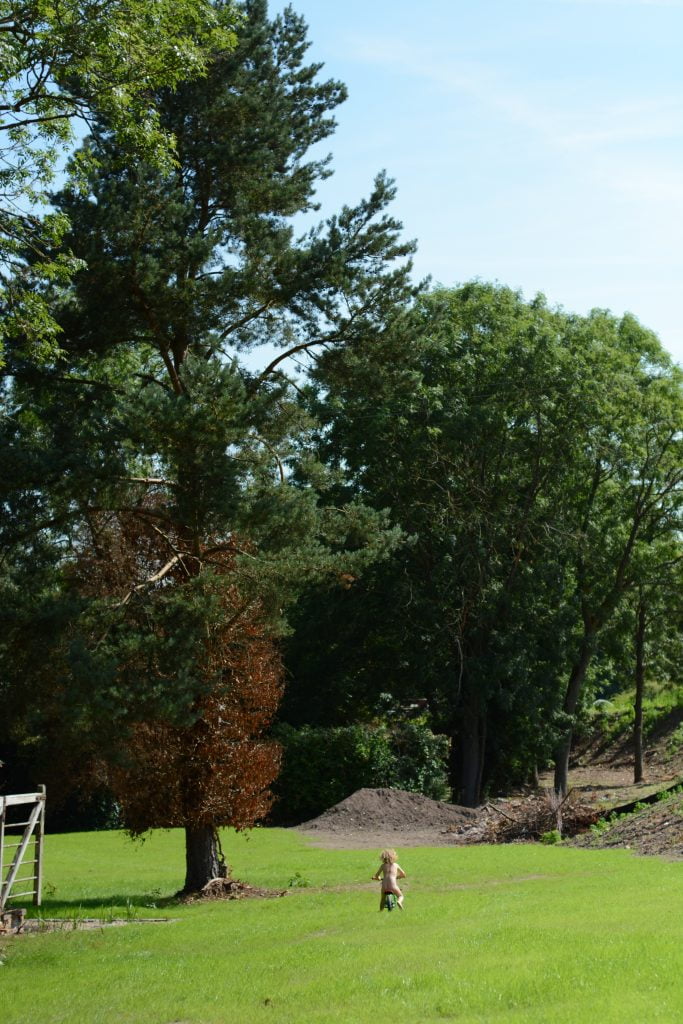
With the boys being so active onboard, it was only a matter of time before we had an injury. I had to take Hector to the hospital recently after he trapped his toe in a deck hatch under his full weight (ouch!). Talking with Dave’s doctor uncle in England it seemed best to get it checked, despite us wanting to avoid hospitals for obvious reasons. Between a combination of photographs of the hatch and initial injury, the help of our excellent cruisers language guide, my mediocre Spanish and Google translate, it was decided after examination that the wound just needed cleaning and re-dressing, and a prescription of antibiotics. Unfortunately, that also means that Hector has not able to swim or visit the beach for the last week- the water here is full of sediment, micro-organisms and such, and too much of an infection risk, which he is dealing with surprisingly well!
Traveling as we do is amazing, and Samaná is a beautiful place to be ‘trapped’, but it’s difficult to be in a foreign country in situations such as this where the medical facilities are considerably more basic than we are used to in the UK, communication is difficult and the healthcare system confusing. I hate to think how stressful a more complicated injury would be, especially if it required transfer to a hospital with more facilities and expertise. Dave and I are working on our Spanish and helping the kids to pick up at least some key phrases, and though we have less opportunities to practice with locals, between a good learning app and some dual language kids and adult stories we are making progress. With us considering spending a few months more here in Samaná (I’ll discuss this in my next post), some improved Spanish will be essential!
